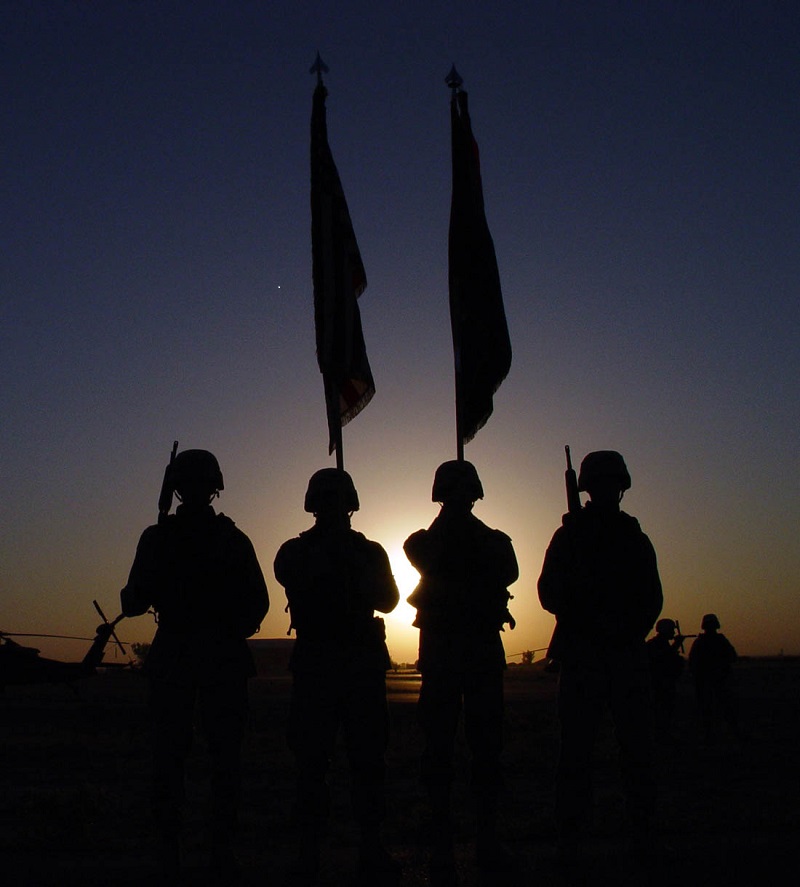The following is a guest post by Digital Conversion Specialist Matt McCrady.

Born and raised in Lebanon, and immigrating to America in the late 1980s, Michel Marcos fought in two wars under the banners of two different countries. In his interview for the Veterans History Project at the Library of Congress, his philosophy of service can be distilled into one simple statement: “Wherever you live, be loyal to that place.”
Living in East Beirut in the 1970s and early 1980s, and raised as a Catholic, Marcos came of age in a country riven by religious sectarian civil war. He joined a Christian militia as a teenager and fought as an ally of Israel against the PLO until, in 1986, he left Lebanon as a refugee and traveled to Marseilles, France. In the meantime, his parents immigrated to the United States, where they lived in Chicago, and through family reunification policies in effect at the time, Marcos and the rest of the family were able to join them there in 1989. Within five years, he was an American citizen.
Marcos worked at a job parking cars and, by contributing his pay to the family’s income, he helped them buy their home and, eventually, the restaurant that would bear their family name, Papa Marcos Grill and Kabob. When terrorists attacked the United States on September 11, 2001, Marcos felt called to serve his country.
Speaking four languages—Aramaic, Arabic, French, and English—Marcos was surprised by the way the recruiter reacted to a then-37-year-old man asking to join the Army. He had not realized how eager the United States Army would be to get him into a uniform.
Describing the moment he met with the recruiter, Marcos says, “I will never forget that day. And he called everyone in. ‘I got one. I got one.’ And I didn’t know what he meant by that. They were so desperate for — well, I knew they were so desperate but not to the point that the recruiter, he didn’t want to just — he didn’t want to let me leave the place before I signed the contract.”
Marcos would go on to serve as part of the post-war defense and rebuilding of Iraq, beginning in 2005. His first post was Hawija, one of the most dangerous areas of the country, where he served as a translator. During his time at Hawija, Marcos experienced numerous attacks by Sunni insurgents. He says he was directly hit by six IEDs during his time in service. In one such attack, Marcos was riding in a Humvee after a meeting with a local Sheik when the vehicle hit an IED and rolled over, resulting in a Traumatic Brain Injury. A good friend of his, whom he refers to only as Matt or Matthew, was killed in a separate IED attack. Marcos says, “I collect him in fragments, and now I’m building a monument for him right in Papa Marcos Restaurant. You will see it in a month or two months, $13,000 monument, nine-foot tall, made of granite that will be dedicated for him.”
Marcos’ service to America was marked by tragedy and violence, as well as prejudice from some Iraqis with whom he worked. “They used to tell me…’You are khayin.’ That means traitor,” Marcos relates. His loyalty to his country never wavered, however. His final message for those who read his interview is powerful:
Once you lose it — the freedom that we have, once you lose it, you may never get it back.”
Those words come to us from someone who knows, personally, the sacrifices that must be made for freedom and for country.
You can experience more of Michel Marcos’s story at the Veterans History Project website, where his interview and related materials are archived for posterity.